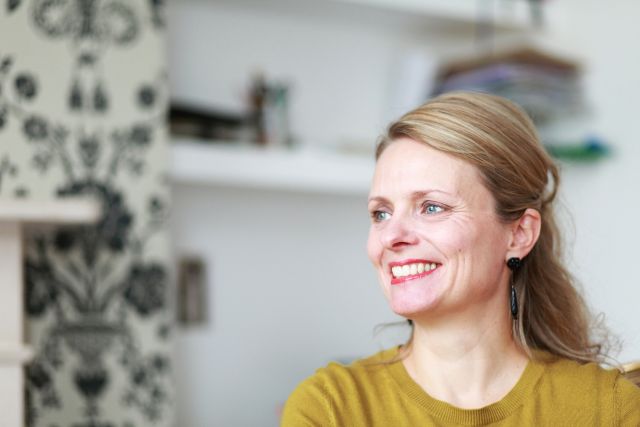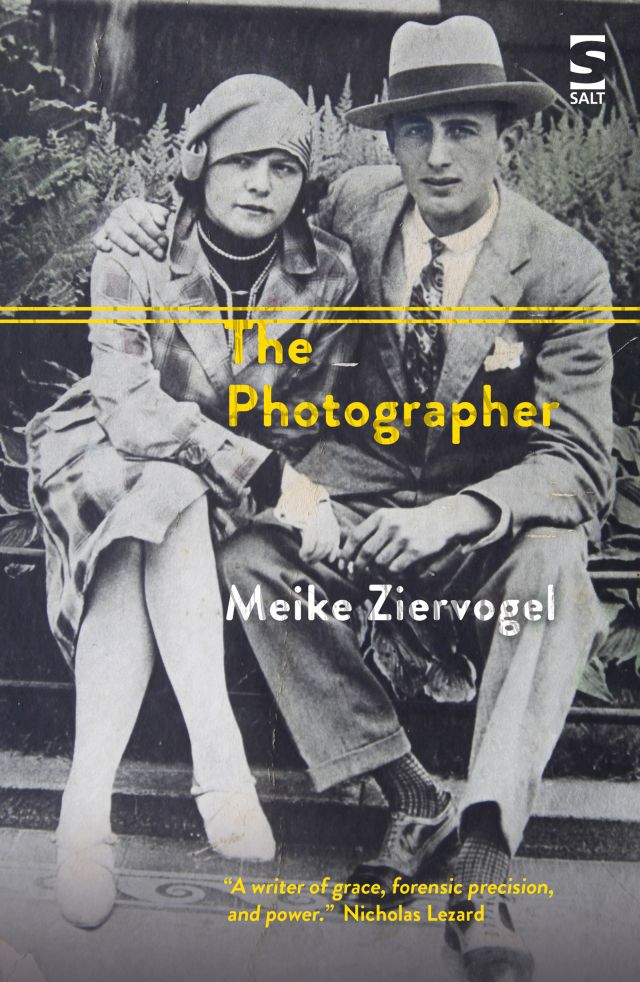Meike Ziervogel, author of The Photographer, on the challenge of writing a happy ending.

I like to tip my characters over the edge. I revel in their delusions and walk with them along the thin line between madness and sanity. Dark psychological novels, with dark beginnings and even darker endings, come easily to me. My first novel ‘Magda’ is loosely based on Magda Goebbels, the Nazi propaganda minister’s wife, who killed her six children and herself at the end of the war. In my second book ‘Clara’s Daughter’ Michele, a successful middle-aged woman ruins her marriage because she cannot handle her mother. And ‘Kauthar’ describes a woman who becomes an Islamic suicide bomber. All three stories focus on self-destructive women.
When I set out to write my fourth novel I knew one thing: I wanted a happy ending. I set myself a challenge: no characters would be allowed to kill each other or themselves. And no character would be allowed to damage the relationships that matter most to them.
But I still wanted to create an exciting narrative.
I took two major decisions:
1. A dark, external, backdrop. In my previous three novels the darkness comes from within the main characters, while their environment could be seen as positive: for example prosperous London in ‘Clara’s Daughter’ and a loving relationship in ‘Kauthar’. In ‘The Photographer’, on the other hand, the backdrop could hardly be darker: war, flight and refugee camps – continental Europe in 1945 when 11 million Germans fled from the advancing Russian army. Yet, the characters themselves possess the potential for courage, compromise and love.
2. An internal flaw. Despite their potential for survival, each of my characters struggles with their failings. Albert, the young photographer, has extra-marital affairs. Agatha, his mother-in-law, betrays him to the police and sends him off to war. Trude, his wife, struggles to confront her mother. And even Peter, their young son, carries a dark secret.
 I have to admit, there came a point in the writing process where I stopped in horror. I had yet again created a plot where all four characters had compelling reasons to be at each other’s throat. But I didn’t want to end the story that way. Should I throw away the draft and start afresh? Instinctively I rejected that option, because by then I had been working on this novel for over a year and I felt that three of the four main characters had come to life. They were ‘real’ and doing what they had to do.
I have to admit, there came a point in the writing process where I stopped in horror. I had yet again created a plot where all four characters had compelling reasons to be at each other’s throat. But I didn’t want to end the story that way. Should I throw away the draft and start afresh? Instinctively I rejected that option, because by then I had been working on this novel for over a year and I felt that three of the four main characters had come to life. They were ‘real’ and doing what they had to do.
If I were to start again, I would likely end up at the same point.
The change came with Albert, the photographer. So far, he had caused me agonies. I had written a number of scenes with him that didn’t work. I knew why but I didn’t know how to solve the problem.
My grandfather had inspired the character of Albert. I knew my grandfather. He died when I was 17.
I remember him as a man liable to short-temper and impatience. I drew Albert with an angry aura because that’s how my rational side interpreted my grandfather – and therefore Albert’s - character.
And then, one day, I realized that Albert isn’t angry at all! Far from it. He perceives himself as lucky – lucky that he survived the war, the Russian captivity, that he found his family again in a refugee camp. I still remember how I sat at my desk that morning and suddenly saw Albert in front of my inner eye emerge from behind a screen of smoke. And I knew I finally – after 18 months – was recognizing him for who he was.
The rest of the novel fell into place beautifully. All I had to do was to follow Albert who led me towards the happy end.
Meike Ziervogel grew up in Germany and came to Britain in 1986 to study Arabic language and literature. She has worked as a journalist in London and Paris. She is the founder and director of Peirene Press, an award-winning UK publishing house. Her debut novel ‘Magda’ (2013) was shortlisted for the Guardian’s Not the Booker prize and was chosen as one of the Books of the Year in the Irish Times, Observer and Guardian. Meike is also the author of Clara’s Daughter (2014) and Kauthar (2015), which were both published to widespread critical acclaim. Her latest novel ‘The Photographer’ is published in May 2017 by Salt Publishing.
Comments